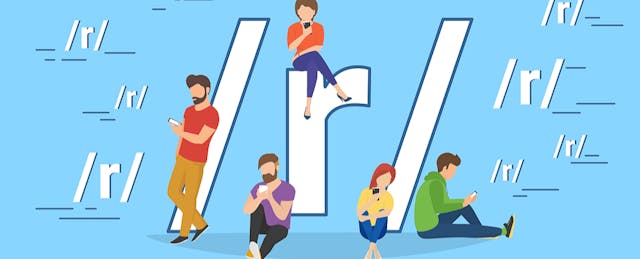You’ll find plenty of fake news and conspiracy theories on Reddit—the kind of material that appears to be eroding political discourse. Yet one professor at the University of California at Davis plans to send her graduate students into the popular online forum this week to teach them to bring more-accurate scientific information to the public.
Reddit has become an important way for scholars to distribute and explain their findings—you just have to know where on the bustling online community to look. The r/Science section of Reddit now boasts 1,300 volunteer moderators—all with some kind of graduate degree—who block out climate deniers and other views that lack rigorous proof.
The UC Davis professor, Tessa Hill, argues that students need to know a new kind of digital literacy these days, which includes understanding where on Reddit and other online spaces to find scholarship—and how to combat misinformation online.
“The Internet is really kind of a scary thing because there’s probably more misinformation than information there,” Hill says. With the election of Donald Trump, who has Tweeted that he does not accept the scientific consensus around climate change, and an apparent increase in the influence of fake news, she adds, there is even greater pressure on scientists “to reach out to new audiences and talk to people about why we need scientists in our life and why we need evidence” to back up policy decisions.
So on Friday, three of her students who have never been on Reddit before will participate in an AMA session (which stands for “ask me anything) in the r/Science channel where they will answer questions from the public about their field, oceanography. AMAs have become a signature part of Reddit, and experts from all walks of life participate in these open office hours in many sections of the community (Barack Obama has done one, for instance, as has actor Patrick Stewart). “They’re sort of pulling back the curtain a little bit on science,” Hill says of her students.
The effort fits into a larger trend by professors who are rethinking the role of the student in college courses. A new paper calls it “crowdsourcing the curriculum,” where students are taught to become digital citizens in online communities and develop habits—like knowing how to participate in Reddit AMAs—that they can continue once class is over.
Part of the goal is to build skills to become a better lifelong learner, says one of the paper’s authors, Caroline Haythornthwaite, a professor in the School of Information Studies at Syracuse University. But she also wants professors and students to rethink the boundary between the classroom and the broader online world. “You can think of something like Reddit as a great big classroom where everyone is deciding what the question is and how they’re going to approach it,” she says. “I’ve been trying to rehabilitate the word ‘elearning’ to talk about the way we learn on, and with, the Internet.”
Fighting ‘Sea Lions’
Training students to navigate the online world appears to be getting more complicated. And today’s students need help.
A widely-discussed study out of Stanford University found that 82 percent of middle schoolers could not tell the difference between a sponsored article and a real news story, for instance. “Overall, young people’s ability to reason about the information on the Internet can be summed up in one word: bleak,” the report’s authors write. “At present, we worry that democracy is threatened by the ease at which disinformation about civic issues is allowed to spread and flourish.”
Nathan Allen is at the front lines of the issue, as the moderator for the r/Science section of Reddit. He says that scholars often face a hostile world when they attempt to share their expertise online—one that they may not be prepared for. That’s especially true for those studying climate science or other research areas that have become politicized.
“There are people who actually strategize on how to disrupt legitimate news that is contrary to their agenda,” he says. “They do things like badger people that they disagree with.”
One tactic has come to be known as sea lioning. That’s when opponents of a scientist’s work pepper them with seemingly polite but insincere questions demanding evidence for every point they make, as a way to throw them off point or exhaust them. “It’s culturally censoring people,” he adds. “The amount of energy it takes to respond to each point is just overwhelming. A lot of scientists just aren’t up for the fight.”
He and his team of moderators of r/Science take pains to block sea lions and others attempting to disrupt conversations there. But there are thousands of other channels on Reddit where trolls rule.
“Reddit has really slid into really bitter political debate and really nasty behavior.
It’s troublesome,” Allen says. “I worry sometimes that all this work [on r/Science] will be for naught because Reddit will have such a bad reputation with good people that people will find other places to go.”
Now, more than ever, he argues, scholars need to engage online. “Evil proliferates,” he says, “when good people remain silent.”


